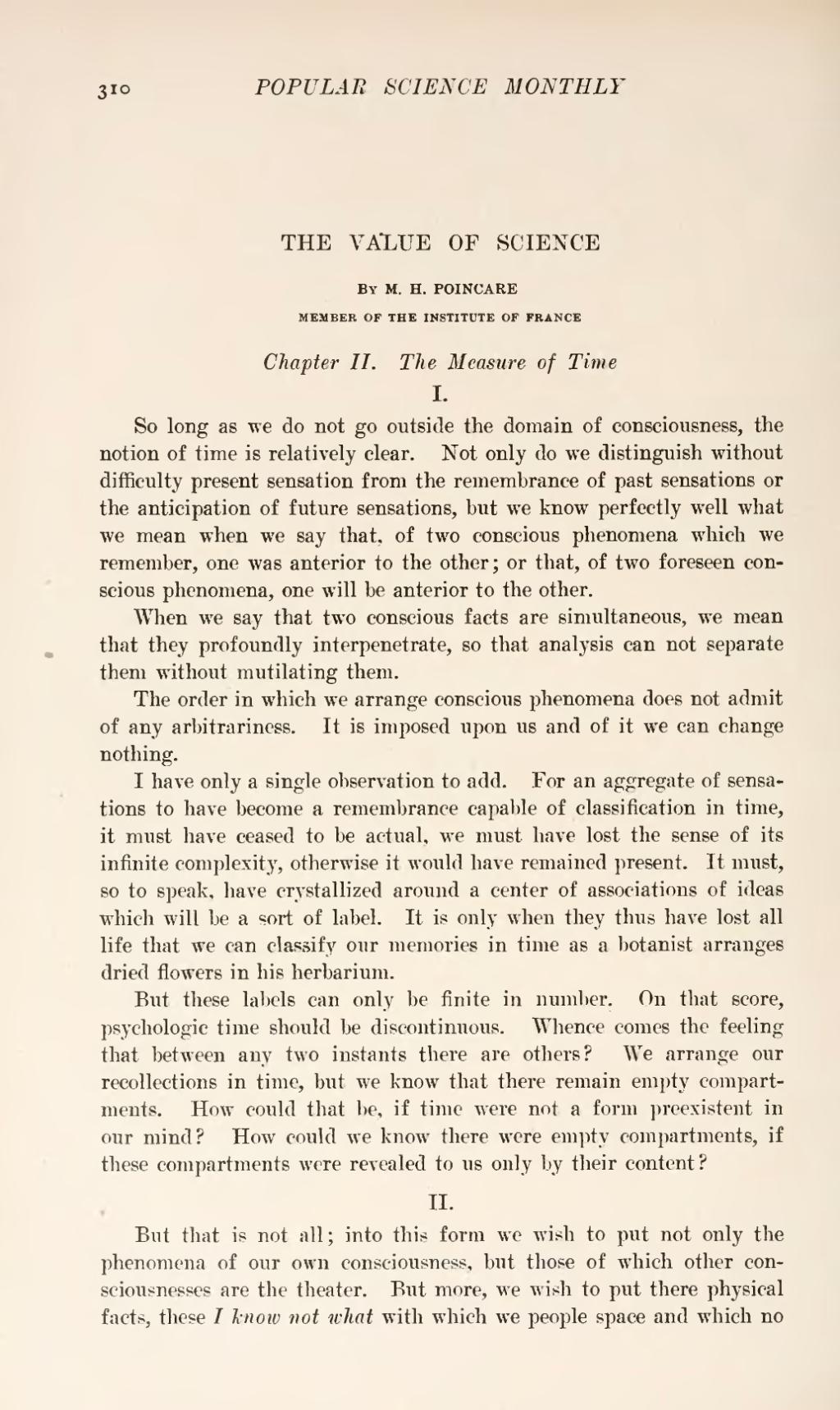| THE VALUE OF SCIENCE |
By M. H. POINCARÉ
MEMBER OF THE INSTITUTE OF FRANCE
Chapter II. The Measure of Time
I.
So long as we do not go outside the domain of consciousness, the notion of time is relatively clear. Not only do we distinguish without difficulty present sensation from the remembrance of past sensations or the anticipation of future sensations, but we know perfectly well what we mean when we say that, of two conscious phenomena which we remember, one was anterior to the other; or that, of two foreseen conscious phenomena, one will be anterior to the other.
When we say that two conscious facts are simultaneous, we mean that they profoundly interpenetrate, so that analysis can not separate them without mutilating them.
The order in which we arrange conscious phenomena does not admit of any arbitrariness. It is imposed upon us and of it we can change nothing.
I have only a single observation to add. For an aggregate of sensations to have become a remembrance capable of classification in time, it must have ceased to be actual, we must have lost the sense of its infinite complexity, otherwise it would have remained present. It must, so to speak, have crystallized around a center of associations of ideas which will be a sort of label. It is only when they thus have lost all life that we can classify our memories in time as a botanist arranges dried flowers in his herbarium.
But these labels can only be finite in number. On that score, psychologic time should be discontinuous. Whence comes the feeling that between any two instants there are others? We arrange our recollections in time, but we know that there remain empty compartments. How could that be, if time were not a form preexistent in our mind? How could we know there were empty compartments, if these compartments were revealed to us only by their content?
II.
But that is not all; into this form we wish to put not only the phenomena of our own consciousness, but those of which other consciousnesses are the theater. But more, we wish to put there physical facts, these I know not what with which we people space and which no
